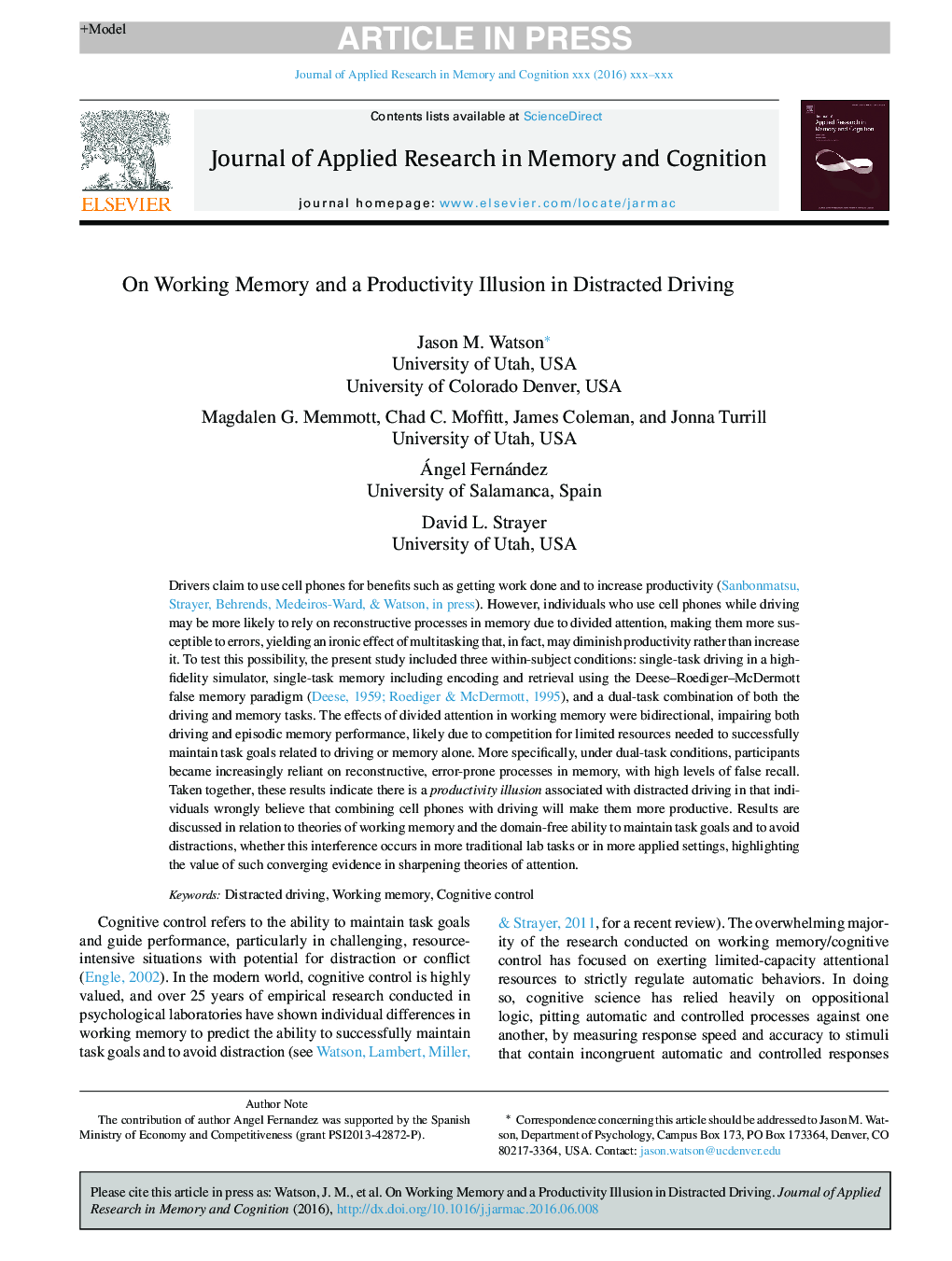| Article ID | Journal | Published Year | Pages | File Type |
|---|---|---|---|---|
| 5034072 | Journal of Applied Research in Memory and Cognition | 2016 | 9 Pages |
Abstract
Drivers claim to use cell phones for benefits such as getting work done and to increase productivity (Sanbonmatsu, Strayer, Behrends, Medeiros-Ward, & Watson, in press). However, individuals who use cell phones while driving may be more likely to rely on reconstructive processes in memory due to divided attention, making them more susceptible to errors, yielding an ironic effect of multitasking that, in fact, may diminish productivity rather than increase it. To test this possibility, the present study included three within-subject conditions: single-task driving in a high-fidelity simulator, single-task memory including encoding and retrieval using the Deese-Roediger-McDermott false memory paradigm (Deese, 1959; Roediger & McDermott, 1995), and a dual-task combination of both the driving and memory tasks. The effects of divided attention in working memory were bidirectional, impairing both driving and episodic memory performance, likely due to competition for limited resources needed to successfully maintain task goals related to driving or memory alone. More specifically, under dual-task conditions, participants became increasingly reliant on reconstructive, error-prone processes in memory, with high levels of false recall. Taken together, these results indicate there is a productivity illusion associated with distracted driving in that individuals wrongly believe that combining cell phones with driving will make them more productive. Results are discussed in relation to theories of working memory and the domain-free ability to maintain task goals and to avoid distractions, whether this interference occurs in more traditional lab tasks or in more applied settings, highlighting the value of such converging evidence in sharpening theories of attention.
Related Topics
Social Sciences and Humanities
Psychology
Applied Psychology
Authors
Jason M. Watson, Magdalen G. Memmott, Chad C. Moffitt, James Coleman, Jonna Turrill, Ángel Fernández, David L. Strayer,
